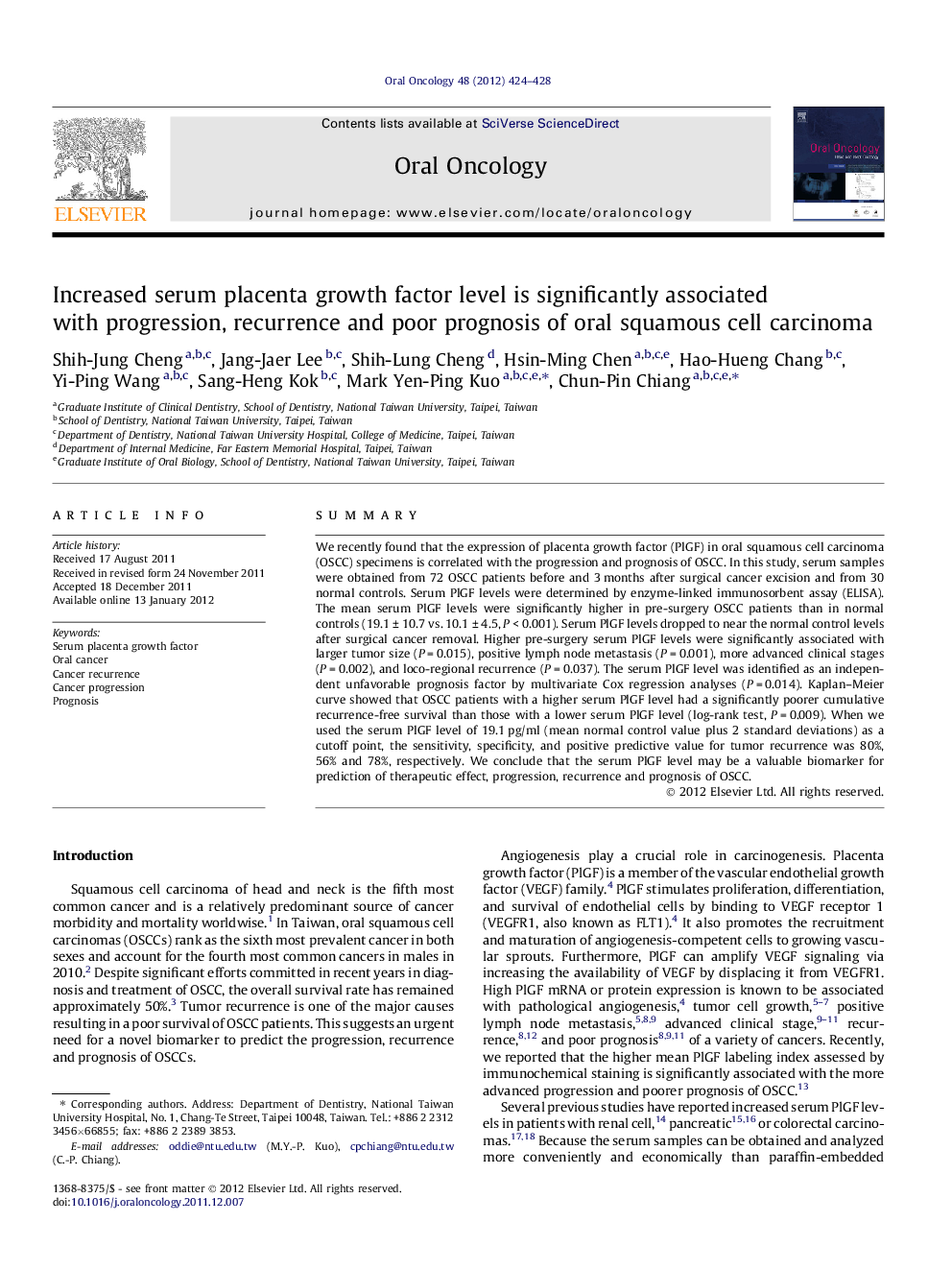| Article ID | Journal | Published Year | Pages | File Type |
|---|---|---|---|---|
| 3164218 | Oral Oncology | 2012 | 5 Pages |
Abstract
We recently found that the expression of placenta growth factor (PlGF) in oral squamous cell carcinoma (OSCC) specimens is correlated with the progression and prognosis of OSCC. In this study, serum samples were obtained from 72 OSCC patients before and 3 months after surgical cancer excision and from 30 normal controls. Serum PlGF levels were determined by enzyme-linked immunosorbent assay (ELISA). The mean serum PlGF levels were significantly higher in pre-surgery OSCC patients than in normal controls (19.1 ± 10.7 vs. 10.1 ± 4.5, P < 0.001). Serum PlGF levels dropped to near the normal control levels after surgical cancer removal. Higher pre-surgery serum PlGF levels were significantly associated with larger tumor size (P = 0.015), positive lymph node metastasis (P = 0.001), more advanced clinical stages (P = 0.002), and loco-regional recurrence (P = 0.037). The serum PlGF level was identified as an independent unfavorable prognosis factor by multivariate Cox regression analyses (P = 0.014). Kaplan-Meier curve showed that OSCC patients with a higher serum PlGF level had a significantly poorer cumulative recurrence-free survival than those with a lower serum PlGF level (log-rank test, P = 0.009). When we used the serum PlGF level of 19.1 pg/ml (mean normal control value plus 2 standard deviations) as a cutoff point, the sensitivity, specificity, and positive predictive value for tumor recurrence was 80%, 56% and 78%, respectively. We conclude that the serum PlGF level may be a valuable biomarker for prediction of therapeutic effect, progression, recurrence and prognosis of OSCC.
Related Topics
Health Sciences
Medicine and Dentistry
Dentistry, Oral Surgery and Medicine
Authors
Shih-Jung Cheng, Jang-Jaer Lee, Shih-Lung Cheng, Hsin-Ming Chen, Hao-Hueng Chang, Yi-Ping Wang, Sang-Heng Kok, Mark Yen-Ping Kuo, Chun-Pin Chiang,
